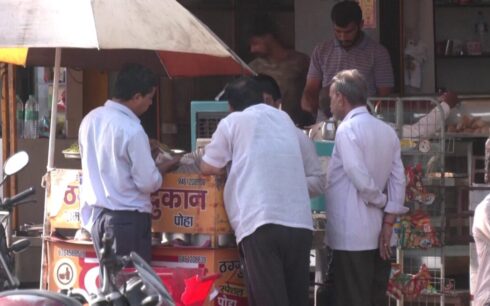KARACHI, Pakistan — As calm tentatively returned to both sides of the India-Pakistan border, residents in Karachi on Wednesday called for renewed and meaningful dialogue between the two nuclear-armed neighbors, saying peace was impossible without addressing the decades-old Kashmir dispute.
“The foremost matter is Kashmir,” said Shams Keerio, a Karachi resident. “Pakistan is clearly saying it is ready to talk, but India must approach this with sincerity. Without serious dialogue that includes Kashmir, these talks will not succeed.”
The remarks come just four days after a ceasefire between India and Pakistan went into effect, halting a violent escalation that included missile and drone strikes across the Line of Control and left dozens dead.
The latest tensions were sparked by an April 22 attack in Indian-administered Kashmir that killed 26 people, most of them Hindu tourists. India blamed Pakistan-based militants for the assault, a charge Islamabad has denied. The incident triggered a military response from India and days of cross-border shelling.
Amir Nisar, another resident of Karachi, urged both governments to look to international mechanisms to resolve the dispute. “The Kashmir issue should be resolved according to UN resolutions,” he said. “But the Modi government, like every Indian government over the past 70 years, does not want a resolution.”
He added that Pakistan “will continue to provide moral support” to the Kashmiri people, and warned of grave consequences if tensions continue to spiral.
“Prime Minister Modi has completely lost his mind,” Nisar said. “If he does not respect the ceasefire, then I believe a real war could break out, one that could cost millions of lives.”
Though Pakistani leaders have previously expressed a willingness to resume talks, India has often conditioned engagement on the end of cross-border militancy. The two countries have fought three wars—two of them over Kashmir—and remain locked in a protracted, bitter standoff over the disputed Himalayan territory.
Kashmir, which is majority Muslim, is claimed in full by both India and Pakistan but administered in parts by each. Recent years have seen India tighten its grip on the region, revoking its semi-autonomous status in 2019 and accelerating security deployments, which Islamabad has strongly opposed.
Back in Karachi, Keerio emphasized that the issue was not simply one of national interest, but of identity and self-determination. “Kashmir is a distinct homeland that belongs to the Kashmiris,” he said. “Only Muslims live there. If the Hindu settlers couldn’t find space for their culture or religion and left, why force them to stay? Kashmir must be returned.”
Despite the recent ceasefire, observers warn that without progress on Kashmir, peace will remain elusive.





